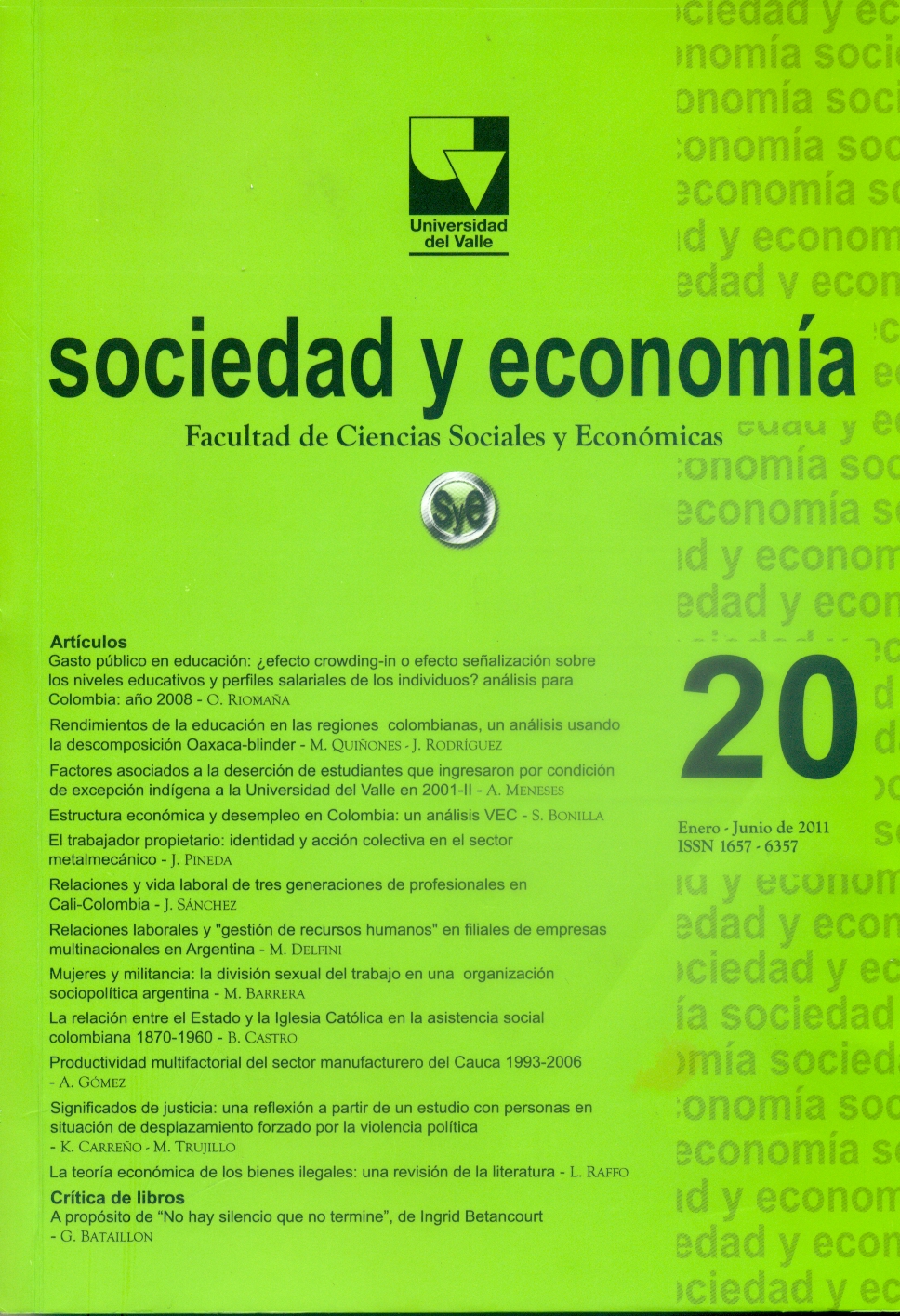Public expenditure on education: Crowding-in effect or signaling effect on educational levels and wage profiles of individuals? analysis for Colombia: 2008
Published:
2011-01-15
Keywords:
Human Capital, Signaling, Public Expenditure on Education, Education Policy, Labor MarketMain Article Content
This paper analyzes the impact of public expenditure on the educational attainments and wages profiles (productivity) of the economic agents in Colombia by using the Quality of Life Survey for 2008. It is contrasted through two scenarios: 1) The human capital theory postulates to public expenditure on education as a mechanism that encourages the accumulation of human capital (crowding-in effect) and 2) the signaling theory that conceives it as a policy tool that provides an educational level to signal individuals in the labor market. The results obtained from a Mincer earnings equation and production function of human capital suggest that the two approaches to explain the public expenditure on education on the educational attainments and wages of individuals.
1.
Riomaña Trigueros OF. Public expenditure on education: Crowding-in effect or signaling effect on educational levels and wage profiles of individuals? analysis for Colombia: 2008. soc.eco [Internet]. 2011 Jan. 15 [cited 2026 Feb. 12];1(20):9-36. Available from: https://sociedadyeconomia.univalle.edu.co/index.php/sociedad_y_economia/article/view/4056
Downloads
Download data is not yet available.

This work is licensed under a Creative Commons Attribution-NonCommercial 4.0 International License.
Revista sociedad y economía editada por la Facultad de Ciencias Sociales y Económicas de la Universidad del Valle se encuentra bajo una Licencia Internacional Creative Commons Atribución - No comercial 4.0
Basada en una obra en http://sociedadyeconomia.univalle.edu.co

